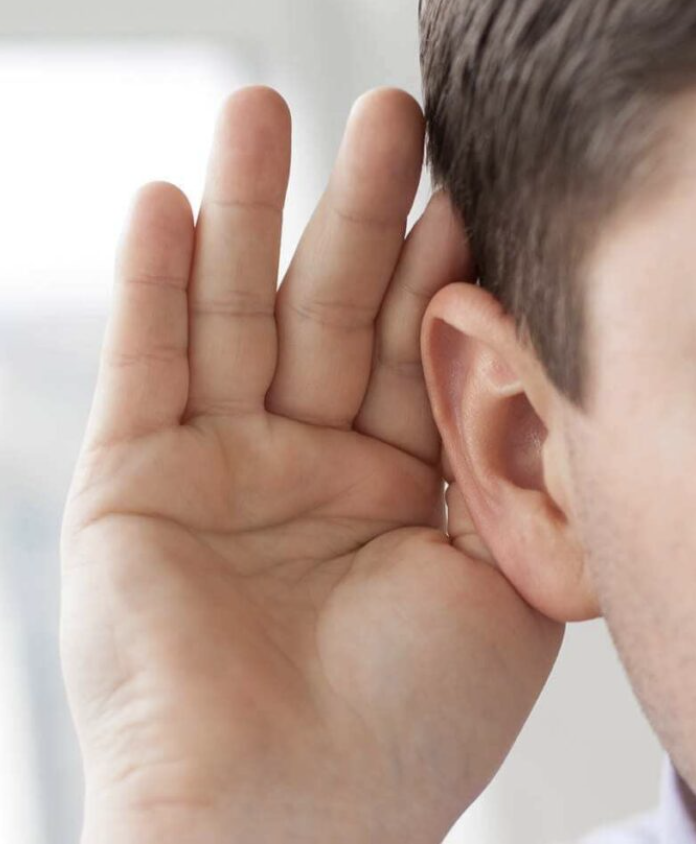Operation Inspiration
Did you ever notice that when you get a new car, you suddenly begin to see more of them on the road than you ever did before? I guess because you found this car to be unique and the right fit for you, you’re shocked how many other people felt the same way, and in a sense, it can be a bit depressing to find out you’re not as unique as you thought.
Well, my family has been telling me for years that I need hearing aids. I think I hear pretty passably most of the time for what I need, and there’s definitely an advantage to not being able to hear everything out there, but I realized it’s time and I’ve started working on it. It’s not vanity that kept me from getting them, it’s just the inconvenience of having to go out and do it.
You may remember when I wrote about wearing glasses and said that I think our sight changes as we age because Hashem wants us to look at the world differently. I think hearing and any of the senses can be the same message. We should change how we listen to things in the world, and what we think of when we smell, taste or touch.
I recall a Rabbi Yaakov Machlis (who by now must be a z”l) who came to my Yeshiva to fundraise for Tashbar. He said to us, “If you’re going to the soda machine to buy a drink, take that fifty cents and give it to Tashbar and drink water instead. The water will taste just as sweet!” Well, at the time, I thought he was delusional, but now, at my advanced age, I appreciate what he was saying; to use our senses differently.
Well, since I made the decision to get hearing aids, I’ve started to notice more and more people who have them. It’s nothing to be embarrassed about, as this is how Hashem made us, and if we can improve our hearing to be better able to interact with others and learn, then it’s a great mitzvah.
What prompted me to finally take the plunge? Two stories. One day I was driving with my wife on a long trip. At one point, she said something and I realized I had no clue what she had just said. While some people would say this is a sure recipe for Shalom Bayis, I don’t think I’d recommend it.
Then there was another thing. I was leaving to work, and I called downstairs to my wife. “I’m heading to the office now, honey. I’ll talk to you later.” She didn’t answer and I realized she hadn’t heard me. When I got to the car, I texted her. “I said goodbye but you didn’t hear me. I will speak to you later.”
She replied, “I did hear you, and I said goodbye. I guess YOU didn’t hear ME.”
Oops. That’s embarrassing. But as I thought about it, it opened my eyes, not just my ears. I’d reached out to her, spoken to her and waited for a response. Hearing none, I assumed she hadn’t heard me. The truth, however, was that she had heard me, and it was my inability to hear her answer which made me think she wasn’t listening.
How many times do we reach out to Hashem in prayer, or better yet, in conversation, and explain what’s going on in our lives, the stress or nervousness we feel, and wait for Him to answer our prayers? What happens when we don’t find the easy or quick solution we’re hoping for? Don’t we assume Hashem hasn’t heard us? I mean, we even ask Hashem to hear our voices every day in Shemona Esrai when we say Shema Kolainu. If we don’t get an answer, He must not be listening.
But now, with this story, I realized that Hashem hears every word, and He likely answers us and tries to reassure us that He’s got it under control. The problem is that we can’t hear Him talking.
It’s not Hashem’s shortcoming, but our own, which leads us to think He isn’t listening. Maybe what we need are hearing aids, something to help amplify and clarify the sounds of His answers. Maybe we need to strengthen our Emunah and Bitachon so the silence isn’t overwhelming. Maybe we need to speak to Hashem more frequently, so we get used to the sound of His voice. And maybe we need to just think about my story and remember that Hashem is answering us, even when we can’t hear it.
That just might help us hear Him a little better, and reassure us that not only is He listening, but He is answering, telling us He loves us, and wishing us a great day.
Epilogue: One further point is that when speaking to others, we may not hear what they’re saying, especially when they may not be saying it out loud. We need to work on honing our ears to hear what people are trying to convey, even if they don’t have the right words.
People may be embarrassed or uncomfortable saying what’s on their minds or in their hearts, and we have to try to put ourselves in their shoes so we can hear what they’re telling us. Sometimes we can’t hear them because our ears are clogged with our foregone conclusions or our own perspective. Once again, the problem isn’t with what someone else is saying; it’s with what we are ready to hear. That awareness itself may just be a good enough start for us to get the help we need in listening well.
© 2023 – All Rights Reserved
Did you enjoy this column? Feedback is welcome and appreciated. E-mail info@JewishSpeechWriter.com to share your thoughts. You never know when you may be the lamp that enlightens someone else.
